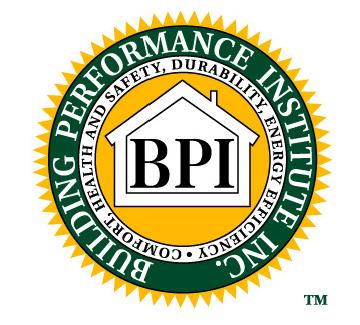No products in the cart.
How RESNET Differs from BPI
If you are working in the home performance industry, and you are interested in becoming a certified energy auditor, you have two choices: one is to become a RESNET HERS Rater and the other is to become a BPI Building Analyst (or some other BPI certification, which we will get into further in a moment).
Right now, RESNET and BPI are the only nationally recognized credentials for individuals who wish to become certified energy auditors. While other programs exist, it is RESNET and BPI battling to be the top credentialing standard for the industry.
In the next few months, the new Energy Auditor standard will be revealed. This standard will be the first one governed and managed by the U.S. Department of Energy (DOE). The new Energy Auditor standard will be thrown into the RESNET/BPI mix as a standalone credential…check back with us as we discuss this development in greater detail.
Understanding RESNET
 RESNET stands for Residential Energy Services Network. This organization regulates energy efficiency, primarily in new homes. A RESNET rating provides a relative energy use index called the HERS Index. HERS stands for Home Energy Rating System. A rating of 100 on the HERS Index represents the energy use of a standard building, while a rating of 0 indicates a new building that uses no net purchased energy.
RESNET stands for Residential Energy Services Network. This organization regulates energy efficiency, primarily in new homes. A RESNET rating provides a relative energy use index called the HERS Index. HERS stands for Home Energy Rating System. A rating of 100 on the HERS Index represents the energy use of a standard building, while a rating of 0 indicates a new building that uses no net purchased energy.
As discussed earlier, a certified RESNET energy auditor is called a HERS Rater. A HERS Rater is trained to do both home energy ratings and home energy audits. Home energy ratings generally apply to new home construction or major remodeling. This rating may qualify a home for the Energy Star Homes Designation. Home energy audits involve a prioritized list of improvements and a projected cost/benefit for each of the improvements. A HERS Rater directs customers to a qualified contractor to implement the improvements suggested in the audit.
To become a HERS Rater, one must take a two-hour, 50-question written exam and pass with a score of 80% or better. One must also complete five provisional ratings within one year of passing the exam. A RESNET training provider must supervise two of the ratings – in Everblue’s RESNET HERS Rater training, students will get the opportunity to achieve their two ratings. The last three ratings are “probationary.” These ratings must all be conducted within one year of passing the written exam, and all ratings performed by a HERS Rater are submitted to a RESNET affiliate for quality control and approval.
Understanding BPI
 BPI stands for Building Performance Institute. BPI is a non-profit organization that also regulates energy efficiency, though we like to note that the emphasis is more on retrofitting existing homes. A BPI Building Analyst is certified to conduct blower-door tests (which should be done both before and after upgrades), combustion appliance inspection and repair, air quality testing including carbon monoxide detection, duct testing and airflow testing. A BPI Building Analyst needs to re-certify every three years, either by re-taking the exams or by completing continuing education from a BPI affiliate.
BPI stands for Building Performance Institute. BPI is a non-profit organization that also regulates energy efficiency, though we like to note that the emphasis is more on retrofitting existing homes. A BPI Building Analyst is certified to conduct blower-door tests (which should be done both before and after upgrades), combustion appliance inspection and repair, air quality testing including carbon monoxide detection, duct testing and airflow testing. A BPI Building Analyst needs to re-certify every three years, either by re-taking the exams or by completing continuing education from a BPI affiliate.
A certified BPI Building Analyst energy auditor has passed both a written and field exam. The two-hour, 100-question, written exam requires a passing score of at least 70% while the two-hour field exam requires demonstrated competency with the energy audit process and equipment.
Conclusion
Put simply, both RESNET and BPI are home energy audit programs. RESNET is focused on new home construction, while BPI is focused on retrofitting existing homes. Each program has its idiosyncrasies unique to the organization that created the standards, but either way, these programs are the best we have for diagnosing energy efficiency issues and managing residential energy use.

